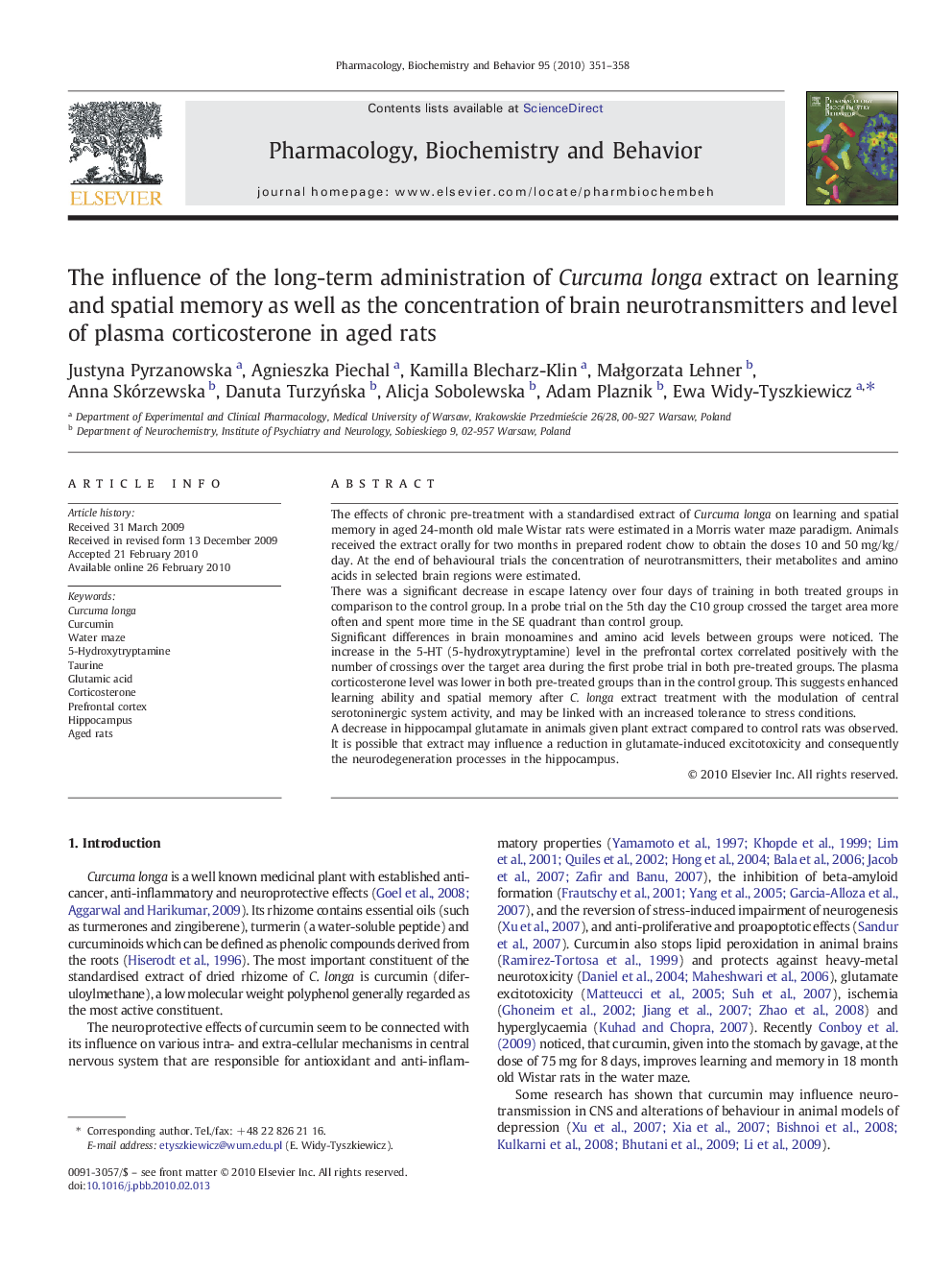| Article ID | Journal | Published Year | Pages | File Type |
|---|---|---|---|---|
| 2013518 | Pharmacology Biochemistry and Behavior | 2010 | 8 Pages |
The effects of chronic pre-treatment with a standardised extract of Curcuma longa on learning and spatial memory in aged 24-month old male Wistar rats were estimated in a Morris water maze paradigm. Animals received the extract orally for two months in prepared rodent chow to obtain the doses 10 and 50 mg/kg/day. At the end of behavioural trials the concentration of neurotransmitters, their metabolites and amino acids in selected brain regions were estimated.There was a significant decrease in escape latency over four days of training in both treated groups in comparison to the control group. In a probe trial on the 5th day the C10 group crossed the target area more often and spent more time in the SE quadrant than control group.Significant differences in brain monoamines and amino acid levels between groups were noticed. The increase in the 5-HT (5-hydroxytryptamine) level in the prefrontal cortex correlated positively with the number of crossings over the target area during the first probe trial in both pre-treated groups. The plasma corticosterone level was lower in both pre-treated groups than in the control group. This suggests enhanced learning ability and spatial memory after C.longa extract treatment with the modulation of central serotoninergic system activity, and may be linked with an increased tolerance to stress conditions.A decrease in hippocampal glutamate in animals given plant extract compared to control rats was observed. It is possible that extract may influence a reduction in glutamate-induced excitotoxicity and consequently the neurodegeneration processes in the hippocampus.
